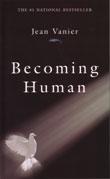The Runner and the Body

The runner and the body. In a certain sense, the two are one and the same: the runner has a body; he could also be described as being a body. The act of running and the body of the runner are inextricably linked. To explore this relationship would undoubtedly be a large task, one I could only hope to partially open within the confines of a blog post. That is why I want to discuss not the body as it is during the act of running but rather, the effects of running on the body and how these effects (or the anticipation of them) can spread their influence to the mind as well.
I don’t think anyone would deny that running is good for the body, though you could deny that it is many other things: namely, enjoyable or worthy of effort and time. I suppose I should also add a condition to the opening statement of this paragraph: running might be more destructive than good for the body that is already plagued with injury. But I see this as the exception rather than the rule. In its ideal and intended form, running brings much ‘good’ to the body. It increases fitness and health, reducing risk of illness through cardiovascular exercise. It also helps to trim and tone the runner’s physique. This last point is the one I want to flesh out a little (if I can be excused for my use of the pun).














